Security forces say policy will not be reviewed before June 2019, by which time Lok Sabha elections and possibly the J&K assembly polls too will be over.
New Delhi: Security forces have killed a record 247 terrorists this year in Jammu and Kashmir, and will keep up the pressure as they believe it is yielding results, top sources have told ThePrint.
The forces only plan to review the tactical operations six months into 2019, as they don’t want to “commit the mistake” of letting down the tempo, as they’ve done before.
Interestingly, 2019 will also see Jammu and Kashmir voting for Lok Sabha and possibly assembly polls. However, it has not been decided yet whether both polls will be held simultaneously.
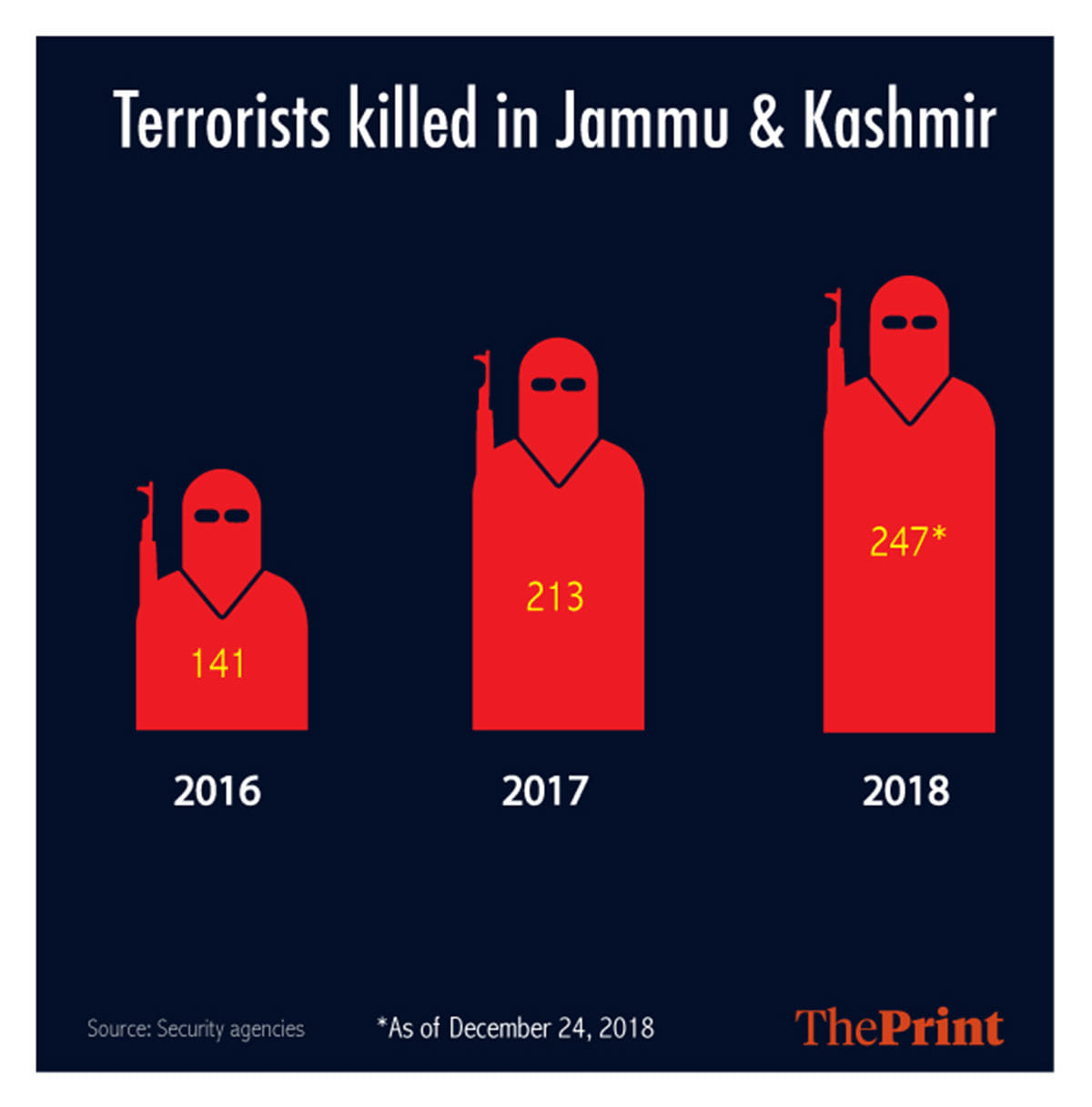
“The tempo of Operation Rakshak will continue into 2019. The security forces have been deployed there for tactical operations and they have achieved a great deal of success till now,” a source in the security establishment told ThePrint.
Another high-ranking source said it was an oft-committed mistake to slow down the pace of tactical operations after a certain time, thinking that the situation has normalised.
“This is a situation that needs to be avoided. The forces neutralised 213 terrorists in 2017, but then everyone was told to ease a bit. Then the Ramzan ceasefire happened this year, which only made the fears come true. The terrorists used this period to recalibrate their strategy, to regroup and spread radicalisation,” the source said.
He added that following the imposition of Governor’s Rule, the pace of the operations was sped up, especially targeting foreign terrorists.
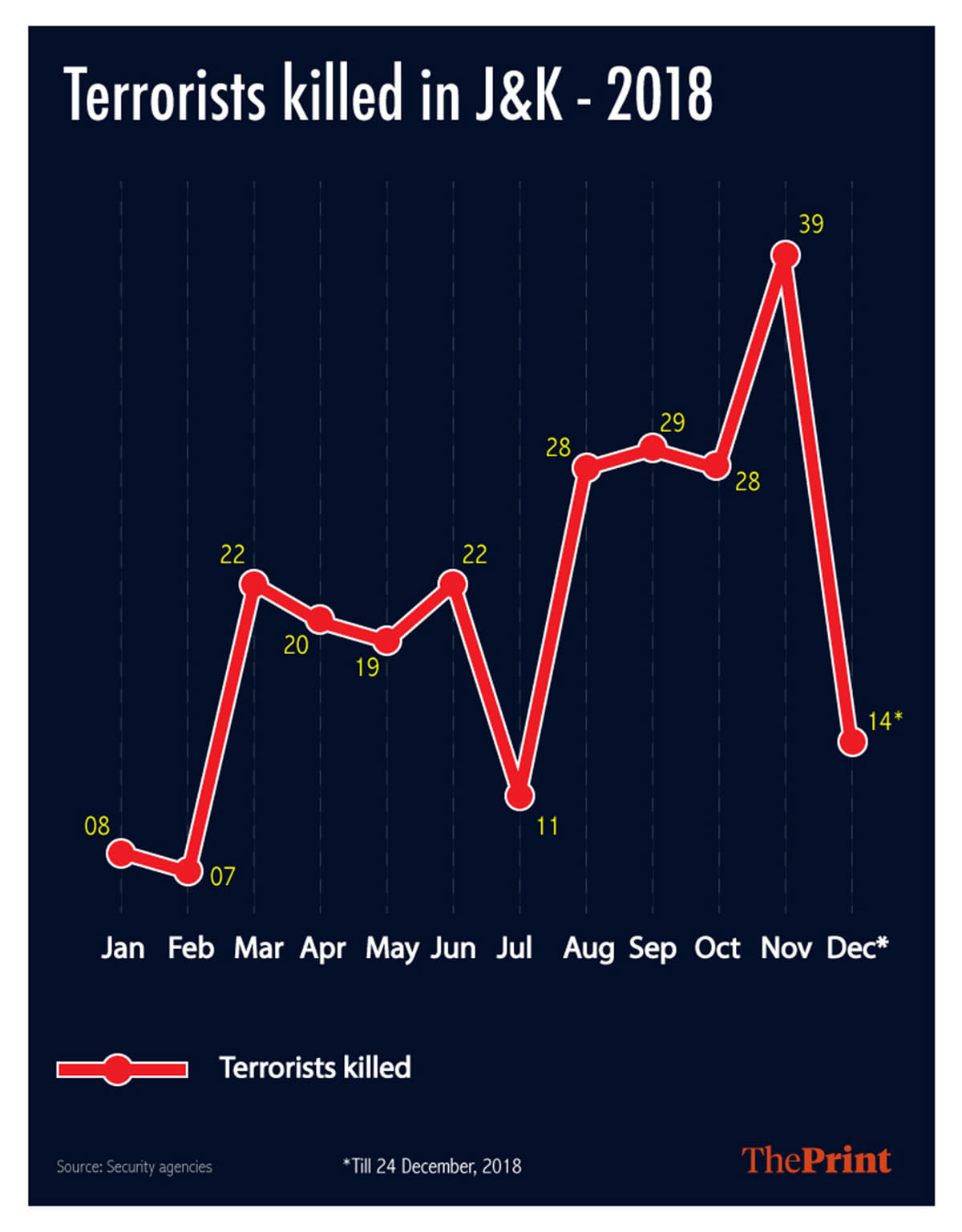
Also read: Pull Jammu & Kashmir out of present crisis, Mehbooba Mufti urges Modi
Ex-officers welcome move
The strategy to keep up the tempo has been welcomed by former officers.
“There is no doubt that the tempo of operations has to be continued. There are number of pillars include security, political, economic and social. What is needed is that other pillars also come into play,” said Lt Gen. D.S. Hooda (retd), former chief of the Indian Army’s Northern Command.
Hooda added that Pakistan is the “big elephant in the room”, and a concerted effort has to be made both diplomatically and along the Line of Control to ensure that it is dissuaded from supporting the terror infrastructure in Kashmir.
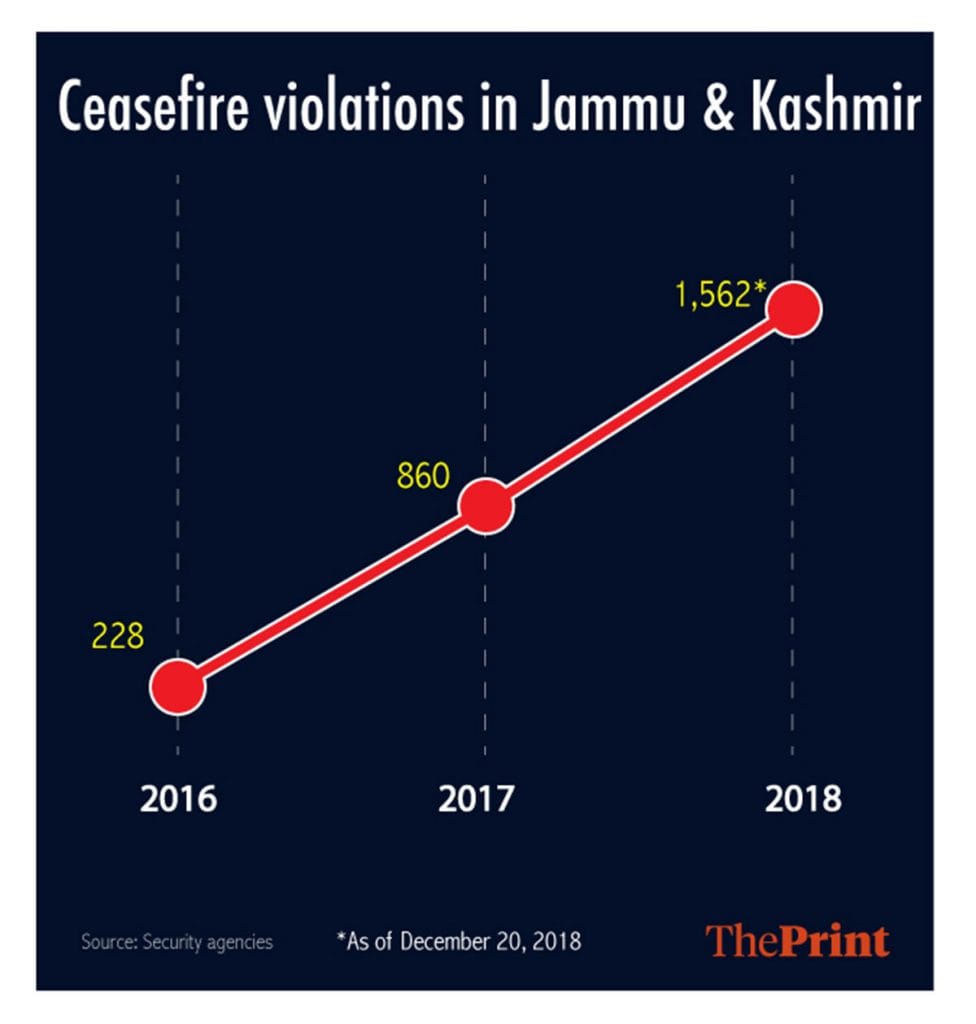
“Everything needs to go in tandem with each other. Only then will the real impact be felt in Kashmir,” he said.
Lt Gen. Vinod Bhatia (retd), former Director-General of Military Operations, said it was important to keep up the pressure.
“The security forces are getting good success. Most of these operations are very specific and based on pinpointed intelligence, and most of the intelligence is coming from the Kashmiris themselves, which means there is a large part of Kashmir that wants this terror to stop,” he said.
Bhatia added it was important to bring down the violence to sub-critical level, and for that, operations needed to go on.
“We will have to wait for the summer of 2019 to really know how things are shaping up,” he said.
Also read: More killings, greater alienation: How the situation in Kashmir is slipping out of hand
Heavy price paid
The main focus of Operation Rakshak is to neutralise the leadership of the Hizbul Mujahideen, Jaish-e-Mohammad, Lashkar-e-Taiba and the al-Qaeda cell Ansar Ghazwat-ul-Hind, and to ensure that a climate of peace is maintained for the civilian government to work without fear.
While in 2016, a total of 141 terrorists were neutralised in Jammu and Kashmir, the figure increased to 213 in 2017.
However, the Indian Army has paid a heavy price for the tactical success it has achieved in Kashmir. It lost 63 men in 2016, compared to 59 in 2017. This year, the figure has shot up to 61 as of 24 December, including 34 in the hinterland and 27 at the LoC.
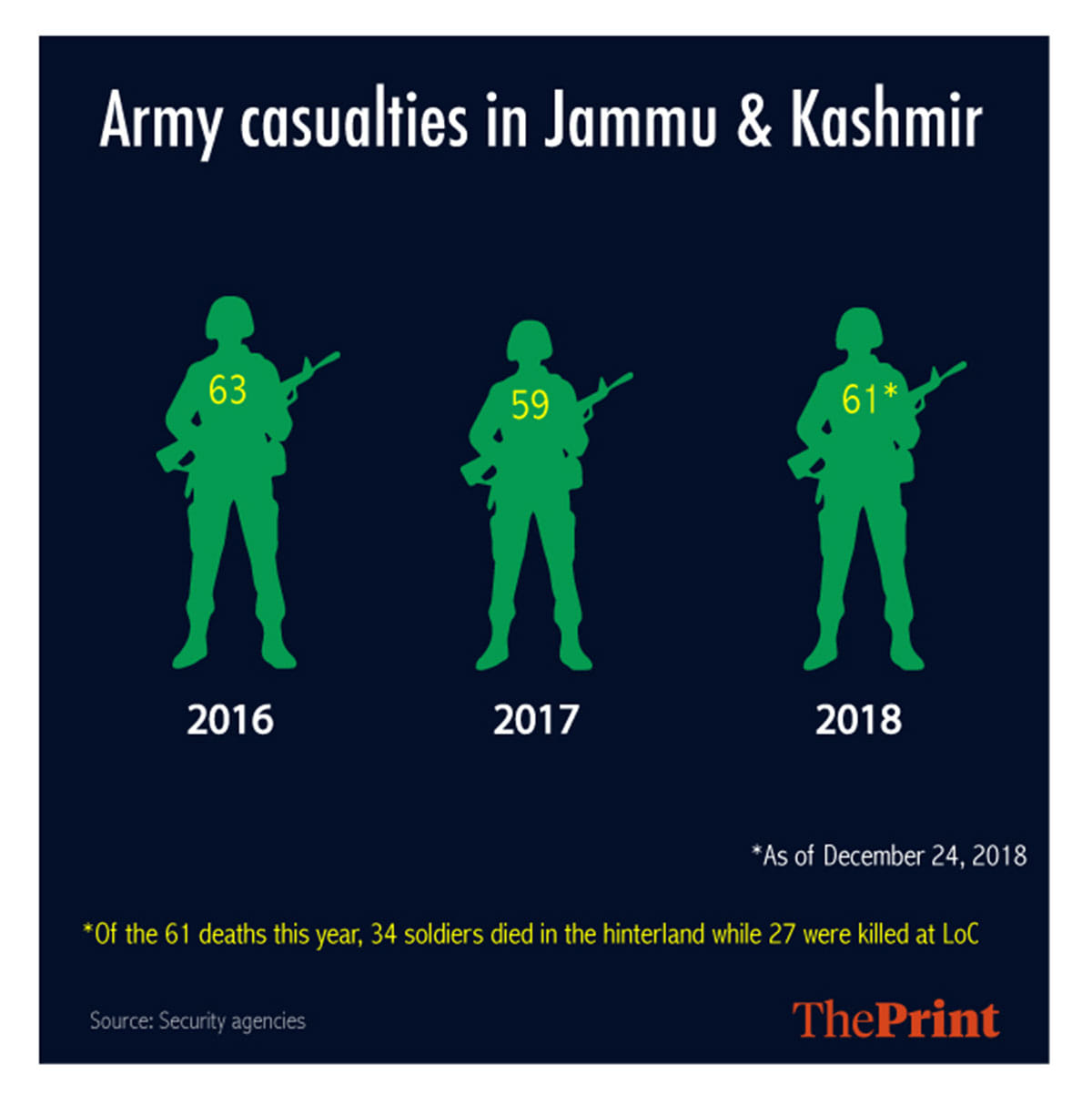
Sources said a number of dynamics are at play in Kashmir, including Pakistan, but the big worry for security forces is not the terrorists trying to sneak into India but the local recruitment that takes place.
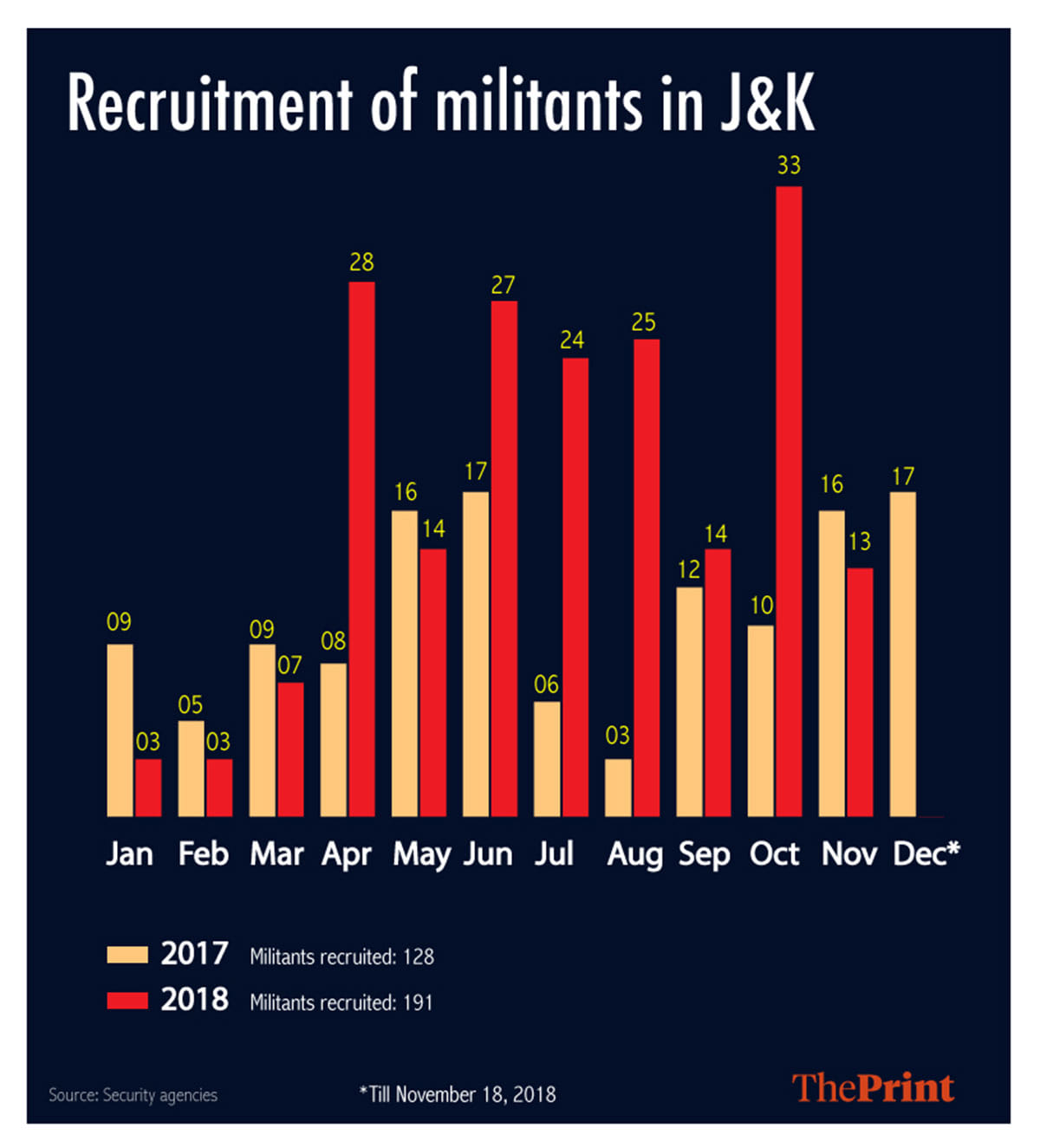
The number of local boys joining terror groups has gone up from 128 last year to 191 this year, with the figures for December yet to be added.
“A number of youth who had joined terror groups have come back and the army and the police are working in tandem to ensure that these young boys can return,” a source said.
But experts like Lt Gen. Hooda feel high recruitment is a serious concern.



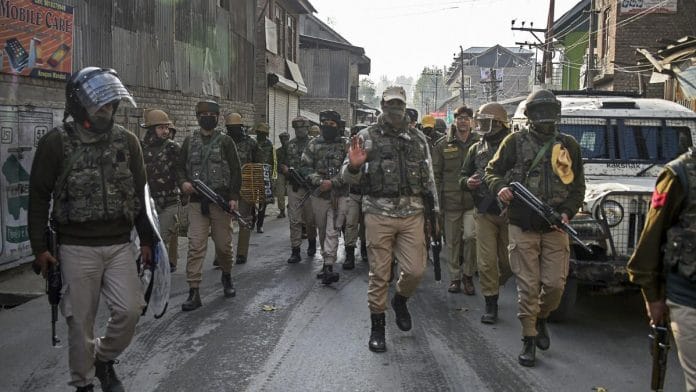



I didn’t know that this specifically.